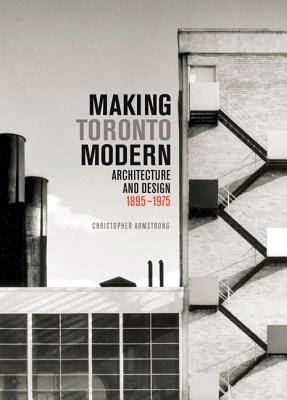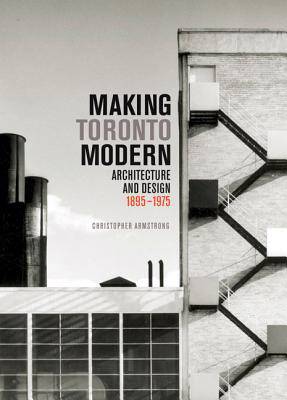
- Afhalen na 1 uur in een winkel met voorraad
- Gratis thuislevering in België vanaf € 30
- Ruim aanbod met 7 miljoen producten
- Afhalen na 1 uur in een winkel met voorraad
- Gratis thuislevering in België vanaf € 30
- Ruim aanbod met 7 miljoen producten
Zoeken
€ 99,95
+ 199 punten
Omschrijving
In the final years of the nineteenth century, Toronto architects started to consider how their city, through progressive architecture and urban planning, could be made "modern." Making Toronto Modern constructs Toronto's architectural past to create a compelling narrative of how new ideas about modernism were debated, received, and embodied in new buildings. Through a close examination of political debates, architectural journals, and home design magazines, Christopher Armstrong describes the competing motivations and ideals that influenced the ways in which the city was built. He shows how radical architectural ideas from Europe began to influence Toronto architects and planners in the 1920s, but that the city's residents proved cautiously conservative about modernism. It was not until the prosperous 1950s that the Modern Movement gained wider acceptance through the work of a new generation of practitioners and by the time Viljo Revell's dramatic New City Hall opened in 1965, it was clear that popular attitudes had undergone significant change. The book profiles major public buildings, university commissions, commercial buildings, and a range of residential architecture - from the homes of the city's richest businessmen in the early twentieth century to modernist works such as the Betel, Horne, and Fraser residences sixty years later. Extensively illustrated with period photographs, many previously unpublished, this broad overview fills a major gap in Toronto's architectural history. A reminder of what is at stake in the reception of new architecture and the factors that shape the development of contemporary architecture, Making Toronto Modern is critical to understanding how Torontonians came to see themselves as living in a world-class city attuned to the avant-garde.
Specificaties
Betrokkenen
- Auteur(s):
- Uitgeverij:
Inhoud
- Aantal bladzijden:
- 420
- Taal:
- Engels
- Reeks:
- Reeksnummer:
- nr. 13
Eigenschappen
- Productcode (EAN):
- 9780773543492
- Verschijningsdatum:
- 1/04/2014
- Uitvoering:
- Hardcover
- Formaat:
- Genaaid
- Afmetingen:
- 200 mm x 266 mm
- Gewicht:
- 1428 g

Alleen bij Standaard Boekhandel
+ 199 punten op je klantenkaart van Standaard Boekhandel
Beoordelingen
We publiceren alleen reviews die voldoen aan de voorwaarden voor reviews. Bekijk onze voorwaarden voor reviews.











